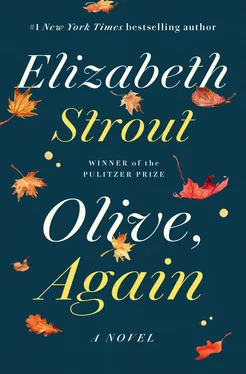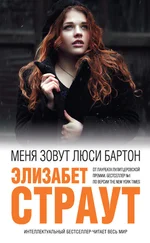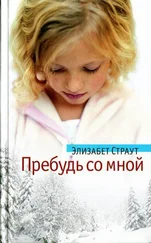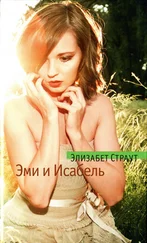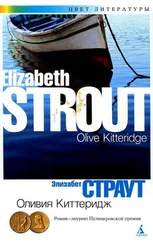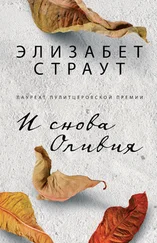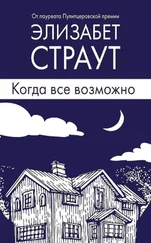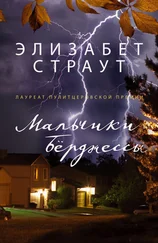“Two?”
“Two. That’s right. Well, three, if you count mine. I had to get my friend Edith’s husband, Buzzy Stevens, to help me get another car when the insurance check came in. I don’t think Buzzy cared much for that, but there we are. No one was hurt. Just me. Shook me up, I will say.”
“Well, of course,” Andrea said in her deep voice.
“I saw on Facebook you were just in Oslo,” said Olive. She ate some of her egg.
“You follow me on Facebook? Are you serious?”
“Of course I’m serious. You just had a whole Scandinavian tour doing poetry readings. I went to Oslo with my second husband, I’ve had two husbands,” Olive said. “And with my second husband we went to Oslo and took a boat—a cruise, I guess it was—around the fjords. They were beautiful, they were. My word. But then Jack got sad, and then I got sad, and we both said, It’s beautiful here, but not as pretty as home. We felt better once we’d figured that out.” Olive wiped her nose with a paper napkin that was on the table. She felt as though she was panting.
The girl was watching her carefully.
“I don’t know what you thought about the fjords, but that’s what we thought.” Olive said this, and sat back.
“I never saw the fjords.”
“You never saw the fjords?”
“No.” Andrea sat up straight. “I gave a reading and hung around with my publisher, and then I had to move on. I wanted to move on. I guess I really don’t care about the fjords.”
“Huh,” Olive said.
“I get lonely when I travel,” Andrea said.
Olive wasn’t sure she’d heard this right, but she decided she had, and she thought about it. “Well,” she said, “you were probably always lonely.”
Andrea looked at her then, gave her a look that confused Olive somewhat; the girl’s eyes were brown but almost a little bit hazel too, and they seemed to break into a tenderness around their corners as she looked at Olive. The girl said nothing.
If there was one student Olive had had over her vast years as a seventh-grade math teacher, if there was one student who was not going to be famous, it was Andrea L’Rieux. The only reason Olive even remembered her was because she used to see the girl out walking alone, and so sad-looking. Such a sad-looking face that girl had. But she had been no student; nope, she had certainly not been that. Not even in English class, because when the girl began to rise to prominence, when she became Poet Laureate of the United States (!) a number of years ago, even her high school English teacher had told a reporter that Andrea had not been much of a student. Horrible old Irene White, stupid as a stick and wouldn’t have known talent if she’d seen it, but still—
“Irene White is dead,” Olive told Andrea, and Andrea nodded and shrugged a slight shrug.
“She seemed old when I had her,” Andrea said. “I remember rouge would get stuck in the wrinkles of her cheeks.”
“Well, she sure wasn’t very generous about you,” Olive said, and when the girl looked at her with surprise, Olive realized that Andrea had not seen the article.
And then Andrea said, “I don’t read anything about myself.”
“Good idea,” Olive said. “Anyway, when they came snooping to me, I said nothing.”
She’d have had nothing to say. She wasn’t going to say the girl had been sad-faced, that she came from a family with God knows how many siblings, let others say that. And they did! But not the sad-faced part; apparently no one but Olive had seen the girl walking the roads of Crosby, Maine, thirty years ago. The sun went down on the apple trees / and held the dark red seemingly forever. This was the only line of Andrea’s poetry that Olive could remember. Maybe because it was the only line she liked. She had read a great deal of Andrea’s poetry. Everyone in town seemed to have read Andrea’s poetry. Her books were always center on display at the bookstore. People said they loved her work. Andrea L’Rieux had been hailed as all sorts of things: feminist, postmodernist, political mixing with the natural. She was a “confessional poet,” and Olive thought there were some things a person need not confess. (There were “angry vaginas” in one poem, Olive remembered now.)
“Thank you,” Andrea said. “For not talking to any reporter,” she added. And then she shook her head and said, almost to herself, “I just hate it all.”
“Oh, come on now,” Olive said. “It has to be fun. You got to meet the president.”
Andrea nodded. “I did.”
“It’s not everyone from Crosby, Maine, who gets to rub shoulders with the president.” Olive added, “What was he like?”
“I think he just shook my hand.” Now her eyes held mirth as she looked at Olive.
Olive said, “And his wife? Did you shake hands with her as well?”
“I did.”
“So what are they like?” Olive loved this president. She thought he was smart, and his wife was smart, and what a hell of a job he had, with Congress being so horrible to him. She would be sorry to see him go.
“He was kind of arrogant. His wife was very nice. She said she read my poetry and loved it, blah-fucking-blah-blah.” Andrea tugged a stray piece of hair back behind her ear.
Olive finished her egg. She thought surely a poet could find words other than the phrase Andrea had just used. “Use your words,” Olive had told her son, Christopher, when he was small. “Stop whining and use your words.” Now Olive said to Andrea, “My husband—Jack, my second husband—he would have agreed with you about the arrogance.” When the girl made no response to this, Olive asked, “What are you doing up here?”
Andrea exhaled a long sigh. “My father got sick. So—”
“My father killed himself,” Olive said. She started in on her muffin, which she always kept until last.
“Your father did? He committed suicide?”
“That’s right.”
After a moment, Andrea asked, “How?”
“How? Gun.”
“Really,” Andrea said. “I had no idea.” She put both hands on her ponytail and smoothed it over her shoulder. “How old were you?”
“Thirty. Why would you have any idea? I assume your father is not going to kill himself.”
“I think it’s unusual for a woman to use a gun,” Andrea said, picking up the saltshaker and looking at it. “Men, yes, that’s what they do. But women—usually I think it’s pills with women.” She sent the saltshaker spinning just slightly across the table.
“I wouldn’t know.”
“No.” Andrea pulled her fingers through her hair that was just above the ponytail. After a few moments, she said, “My father wouldn’t know how to kill himself. He’s, you know, not right in the head anymore. He never was right in the head. But you know what I mean.”
“You mean he’s demented. But what do you mean he was never right in the head?”
“I dunno.” Andrea seemed deflated now. She shrugged. “He was just always—he was just always so mean .”
Olive knew from Andrea’s poetry that the girl had never liked her father, but Olive could not now seem to remember any particular reason for this, he was not a drunk, she’d have remembered that— Olive said, “So now he’s going to die?”
“Supposedly.”
“And your mother is dead.” Olive knew this; the girl’s poetry had been about that.
“Oh, she passed twenty years ago. She’d had eight kids. I mean, come on .”
“You don’t have any kids, am I right?” Olive glanced up as she pulled apart her muffin.
“No. I had enough of babies growing up.”
“Never mind. Kids are just a needle in your heart.” Olive drummed her fingers on the tabletop, then put the muffin piece into her mouth. After she swallowed, she repeated, “Just a needle in your goddamn heart.”
Читать дальше
